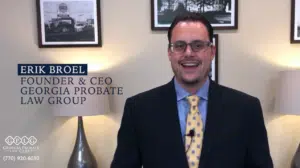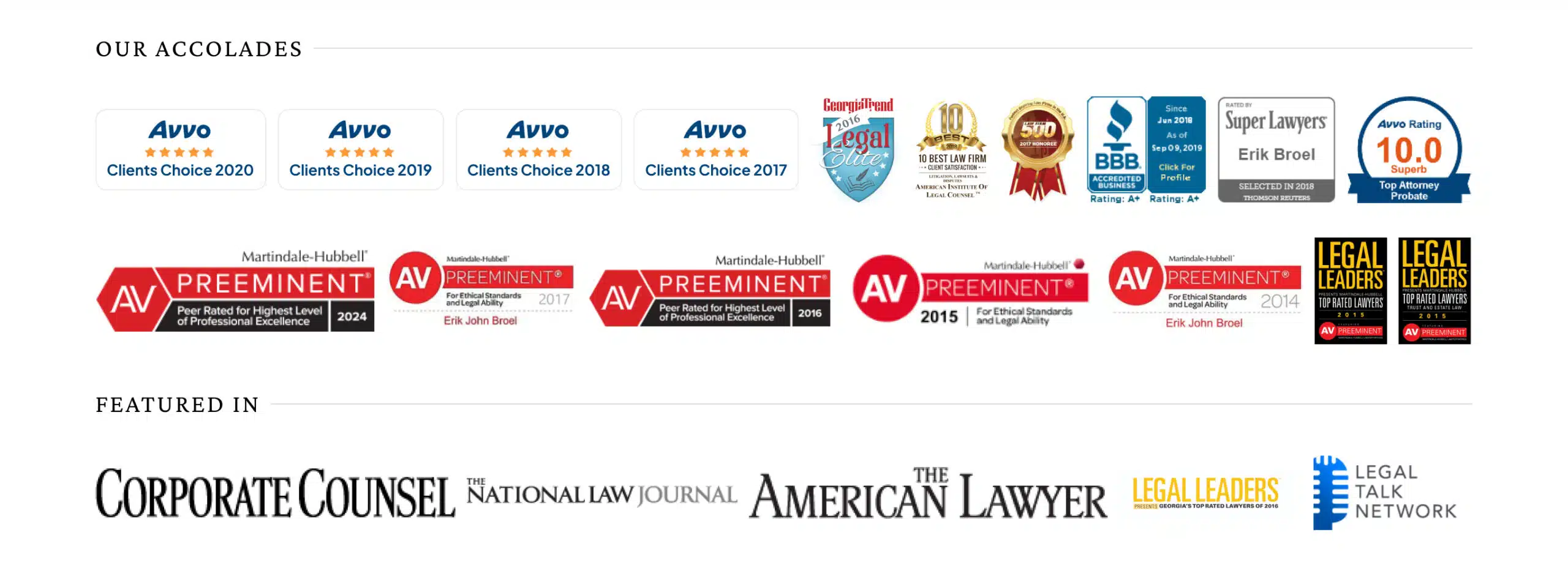What is a probate inventory? Once you become appointed as executor or administrator of an estate, you may be required to file an initial inventory and ongoing annual returns.
This is an area that trips up a lot of personal representatives, and I don’t want you to be one of them.
In this article we’re going to cover the basics of this important topic so you’ll know what to expect and also how to avoid potential probate inventory mistakes.
My name is Erik Broel & I am the founder & CEO of Georgia Probate Law Group.

At our firm we help families who have lost a loved one navigate the complex and confusing legal process so they can make sure the estate is handled properly and their loved one’s memory is honored.
An inventory is a formal list identifying all assets of the estate that is filed with the probate court.
The purpose of the inventory is to tell the court and all heirs and beneficiaries what property the estate owns. Since this initial list forms the baseline to establish what the assets of the estate are, it is important that it is accurate.
This list will include things like:
Each year, the personal representative will be required to file an update to the list called an annual return.

The annual return will show all changes that occurred during the year. For example, the annual return would show things like:
It is important that the annual return balance to the initial inventory or prior annual return. In addition, the annual return must also demonstrate that the personal representative is acting within the powers granted by the probate court.
When an annual return does not balance it is very common for the court to order the personal representative to appear at a hearing to explain the discrepancy.
The same thing will often occur when the return shows activity that the executor or administrator has not been authorized to engage in.
These hearings are taken very seriously by the court and can result in the personal representative being removed from office, sanctioned, or worse.
Everything discussed in this article is for general information and is not legal advice.
If you are in a situation where you need help settling an estate correctly, I recommend you reach out to our office at (770) 920-6030 to set up a consultation.
If you’re not quite ready for a consultation, be sure to download our Georgia Probate Handbook so you know how the estate is supposed to be handled.

Compassionate listeners, knowledgeable guidance. Schedule a free consultation with our team and let us help you and your family with your legal concerns.
GET IN TOUCH 770-796-4685Learn Important Probate Essentials, including key things that go wrong in an estate, how to prevent them, and what to do if they happen.



© 2025 Georgia Probate Law Group by Broel Law, LLC. All rights reserved.